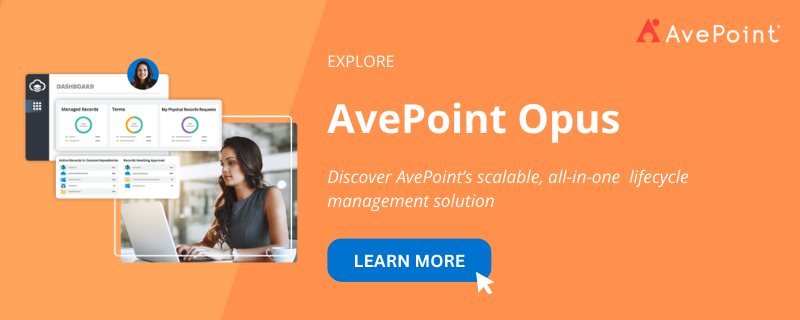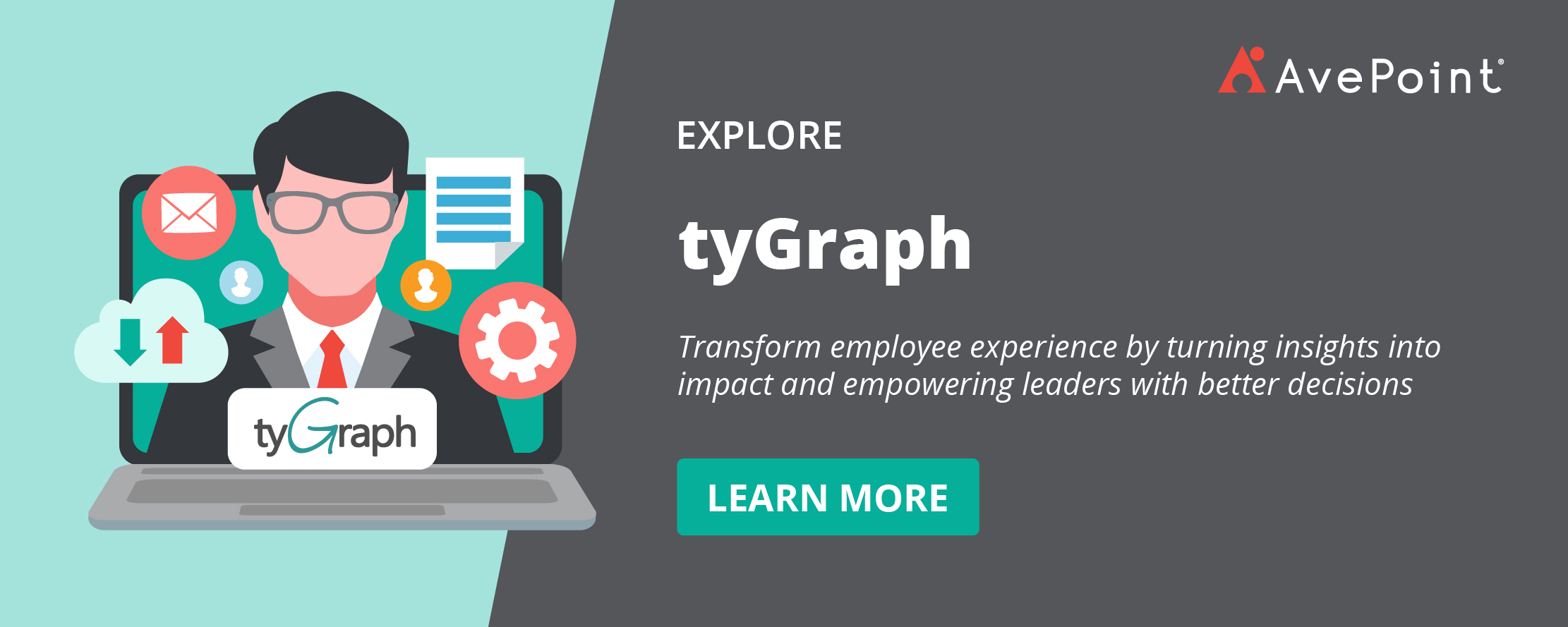Addressing the Top 3 Challenges of AI Implementation with Proven Solutions


The conversation around artificial intelligence (AI) has undergone a significant transformation since it captured global attention last year. Organizations are no longer just talking about the potential AI offers, but rather applying it at scale to solve real, tangible business problems.
This shift from discussion to action has exposed unexpected challenges for organizations during AI implementation. Recent research by AvePoint revealed that 95% of organizations experienced challenges during this process. Left unchecked, these challenges could derail the promise of AI before it truly takes hold.
In this post, we’ll explore the three most prevalent hurdles encountered during AI implementation, based on findings from AvePoint’s AI & Information Management Report, and provide actionable strategies to overcome them.
Challenge #1: Quality of Internal Data
Over half of organizations (52%) experienced challenges with the quality of their internal data during AI implementation.
The Challenge: AI models are only as good as the data they are trained on, underscoring the critical importance of quality data for AI success. Yet, today’s organizations face a complex data landscape, with a staggering 64% of organizations managing over 1 PB and 41% handling at least 500 PB.
Despite this massive amount of data, a significant portion of organizations lack foundational information management strategies to tackle the challenges this data landscape presents.
This discrepancy indicates a critical gap in understanding what’s necessary to maintain data integrity essential for effective AI implementation. Attempting to manually manage such vast and diverse datasets inevitably leads to data quality issues, hindering the efficacy of AI initiatives and impeding organizational progress. It’s no wonder that a significant portion of organizations encountered challenges with data quality.
The Solution: To address these challenges, a comprehensive approach to information management is necessary.
Organizations must prioritize foundational practices such as implementing lifecycle management and retention and archiving policies. These measures not only ensure data integrity and compliance but also bolster operational efficiency.
While elevating your approach may take time and money, your efforts will pay off; organizations in the AvePoint study with more mature information management strategies exhibit higher confidence in their data’s readiness for AI. They also report increased confidence in the accuracy of AI-generated outputs post-implementation.
Solutions like AvePoint Opus help ensure the quality of your organizational data. By offering a holistic view of the data landscape, AvePoint Opus makes it easy to pinpoint redundant, outdated, and trivial (ROT) data, reducing data clutter. Its advanced information lifecycle management capabilities streamline content management from creation to archiving and disposal, further enhancing data integrity, and its AI-powered classification enhances readability, facilitating easier interpretation and extraction of valuable insights by AI systems. Together, these features empower organizations to maintain high-quality data, necessary for your AI tool to generate precise and relevant results.
Challenge #2: Resistance to Change
Almost half (46%) of organizations report encountering challenges due to employee resistance during the implementation of AI.
The Challenge: It’s critical to understand why you are implementing AI within your organization. While many view AI as an employee productivity enhancer, its potential extends far beyond mere efficiency gains. However, measuring success solely in terms of productivity overlooks a critical aspect: employee satisfaction and fulfillment.
Your workforce may be worried that AI has the potential to replace their roles, leading to reluctance to adopt its use. They might also think that it’s too much work to learn a new tool and that the process of incorporating it into their daily work might seem daunting. That’s why it’s important to make employees understand how AI can enhance their productivity so they can have the motivation and confidence to explore its possibilities.
The Solution: To encourage the adoption of new technology and ensure its sustainable use by employees, organizations must empower their workforce and bridge the skills gap by providing comprehensive training in AI fundamentals.
By investing in AI literacy programs, companies can equip their employees with the necessary knowledge and skills to embrace new technologies confidently.
Equally important is information literacy, so employees can discern between accurate information and potential in AI-generated content. This skill becomes increasingly vital as concerns about AI bias heightens, emphasizing the need for employees to critically evaluate and interpret AI-generated insights. By prioritizing responsible use of data and technology, organizations can pave the way for AI to positively impact employees.
AvePoint tyGraph offers a comprehensive view into the employee experience with AI, providing robust analytics and insights into Copilot usage and adoption. By tracking adoption trends over time, organizations can pinpoint untapped opportunities for increased engagement and determine the necessary guidance to scale usage to accelerate adoption. With data-driven insights, organizations can confidently allocate resources to ensure transformative solutions reach teams primed for maximum benefit, enhancing both investment returns and employee satisfaction.
Challenge #3: Unintended Data Exposures
Almost half (45%) of organizations reported unintended data exposures during AI implementation.
The Challenge: While we’ve seen how AI adoption has been redefining the digital workplace in many ways, there are also risks to utilizing this technology. AI systems require extensive datasets to train on, raising concerns about the inadvertent inclusion of sensitive personal information or proprietary data. Without proper safeguards, these datasets may become vulnerable to breaches or misuse, posing threats to privacy and data security.
The prevalent use of public AI technologies, where there is limited oversight, exacerbates the situation. Alarmingly, only 47% of organizations have implemented an AI Acceptable Use Policy, leaving them vulnerable to potential misuse of AI. Consequently, only 44% of respondents in the Report feel confident about their organization’s capability to use AI safely. And as more organizations integrate AI tools to their operations, the increasing reliance on AI tools without proper data security measures in place can lead to even more significant risks.
The Solution: Before beginning AI implementations, organizations must first proactively address their data concerns. To achieve this, organizations must establish strong data privacy protections.
By implementing robust data privacy measures like permissions management and access controls, companies can ensure the security and integrity of their data. This includes enforcing necessary policies for collaboration workspaces based on their expected use and data to safeguard sensitive information.
Furthermore, it is crucial for organizations to implement clear guidelines regarding data ownership and usage rights. This points to defining who owns the data, how it can be used, and by whom. By promoting transparency and accountability, organizations can build trust among stakeholders and ensure ethical data practices.
To mitigate the risks of unintended data exposure, AvePoint Insights provides visibility into access controls across SharePoint, OneDrive, Groups, and Teams, enabling organizations to quickly detect potential data risks and take corrective actions. It helps assess the effectiveness of permissions for sensitive information within Microsoft 365, allowing users to adjust security measures directly within the tool.
Conclusion
Now that we’ve recognized the challenges of AI implementation, it’s evident that having a reliable solution to address these threats remains crucial for every organization aiming to create an AI-ready environment.
Despite the numerous challenges associated with AI, the potential benefits for organizations make it worthwhile. From increased productivity to developing sound business decisions, organizations can reap the transformative power of AI.
Take the next step towards achieving AI readiness for your organization through robust information management, comprehensive training initiatives, and stringent data privacy measures. AvePoint doesn’t just offer solutions; it provides pathways to success in the AI era.
Is your organization ready for the AI era? Plan your next steps with AvePoint today!

Hazel Foz is a Content Marketing Specialist at AvePoint, covering Channel Marketing and Partner Programs. With years of experience writing for global e-commerce and B2B technology organizations, Hazel creates content that helps Managed Service Providers (MSPs), value-added resellers (VARs), and other partners navigate the rapidly changing digital landscape with insights on business growth and scalability, vendor support, integration, and more.






